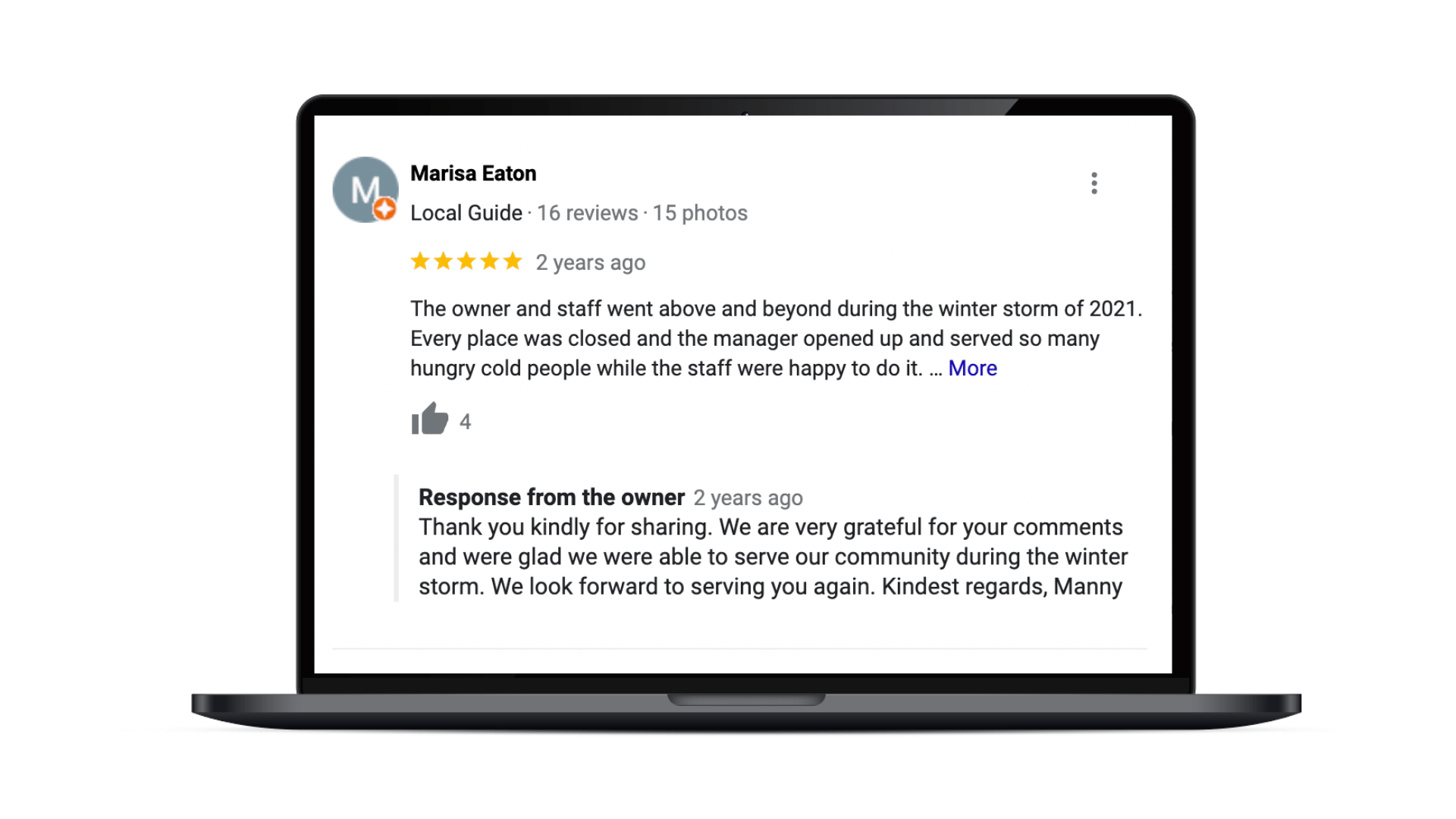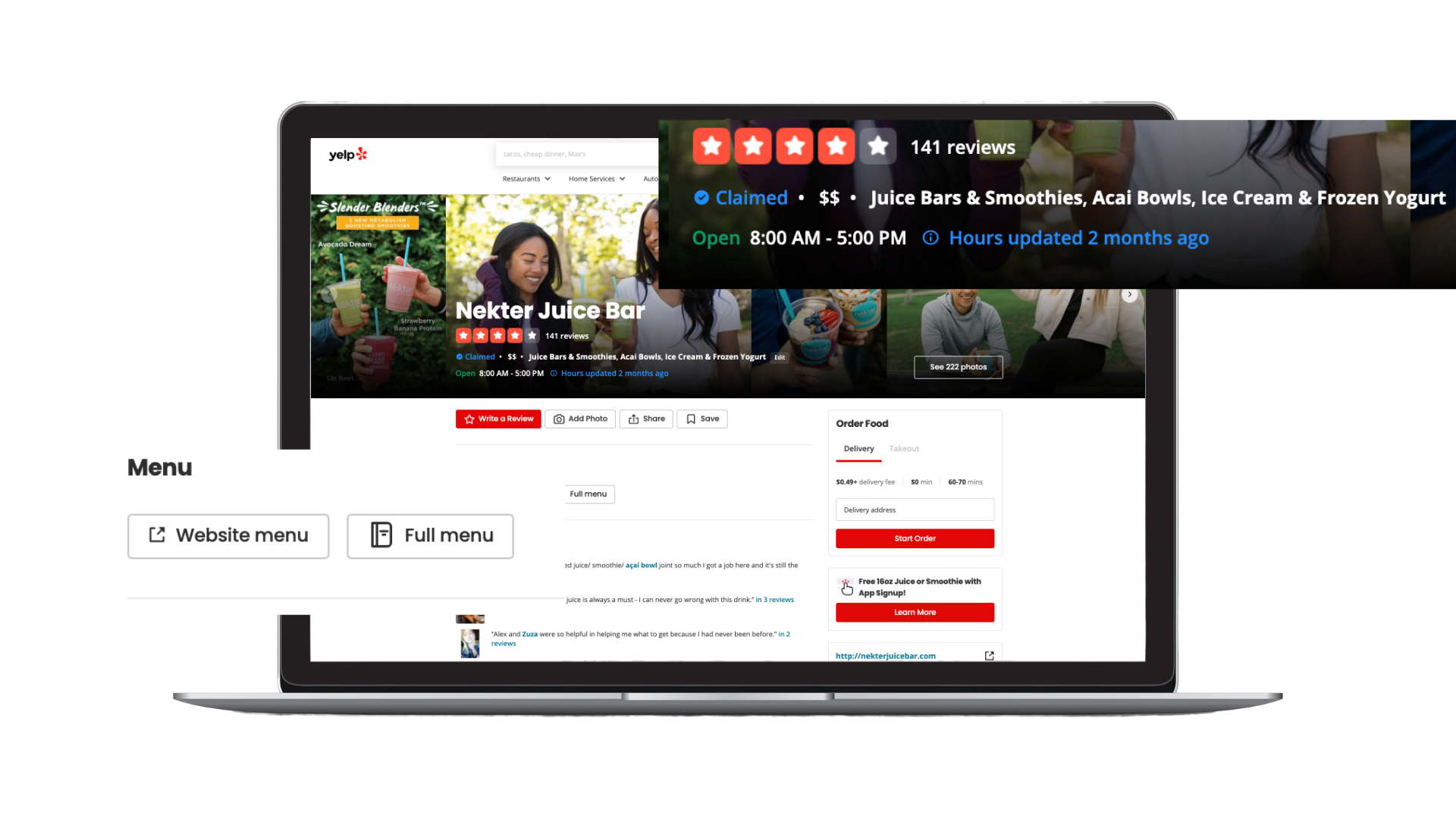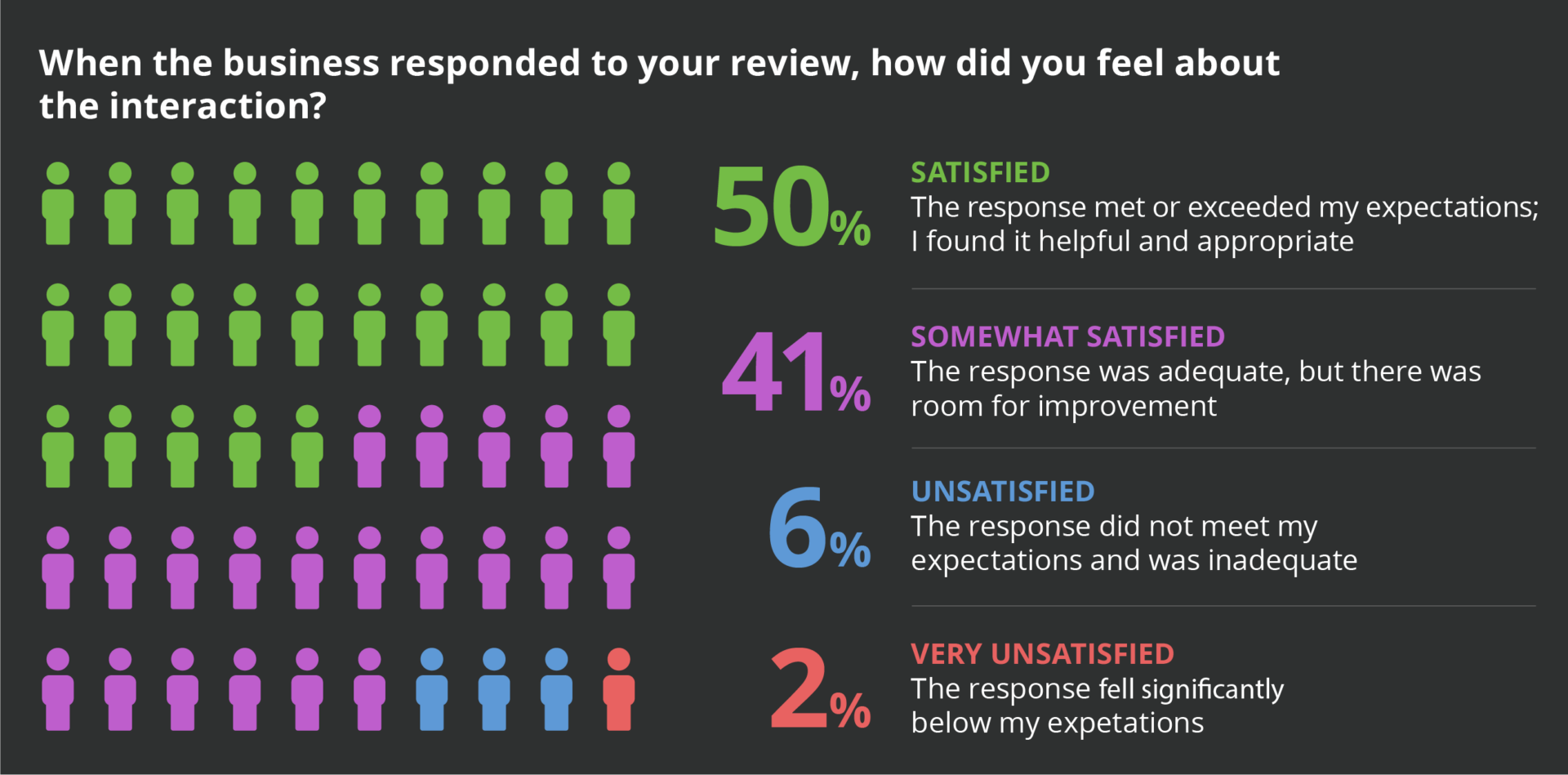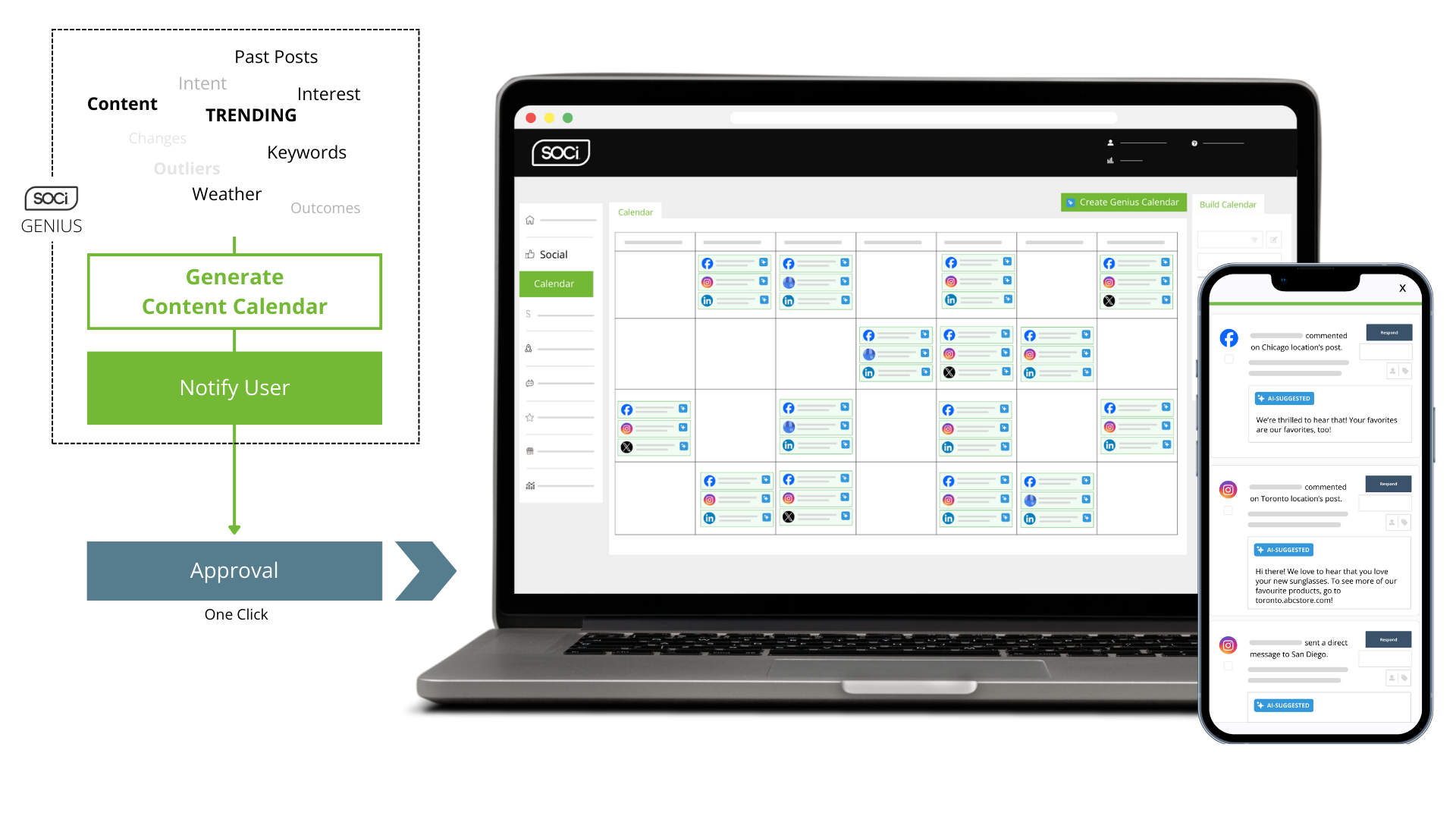Local Memo: Google’s Brand Loyalty Drops as AI Overviews Continue to Provide Terrible Answers
The Power of Reputation Marketing: Boosting Your Brand’s Online Presence

The Power of Reputation Marketing: Boosting Your Brand's Online Presence
In today's digital age, a brand's reputation can fluctuate with every review, brand mention, or post. Managing how your business is perceived isn't just a nice-to-have — it's a necessity. Enter reputation marketing, an artful blend of strategy, technology, and customer-centric policies designed to maintain your brand's stellar reputation. This comprehensive guide delves deep into the essential aspects of reputation marketing, showcasing its pivotal role in shaping the success of your brand.What is Reputation Marketing?
At its core, reputation marketing is the proactive cultivation of a positive online image for your brand.It's about putting your best foot forward and ensuring the right people see you at the right time. Reputation marketing requires forward-thinking and thoughtful action to enhance and uphold your brand’s image.
Reputation Marketing vs Reputation Management
The distinction between reputation marketing and reputation management is crucial. Reputation management is reactive and often involves damage control; it ensures that your brand weathers the storm of negativity unscathed. For instance, with reputation management, you're often responding to negative reviews and social media engagements. Reputation marketing serves as the driving force propelling your brand forward. It involves capitalizing on the positive facets of your reputation to present your brand favorably to consumers. Reputation marketing is omnichannel. It focuses on creating a memorable customer journey that encourages positive reviews, strong brand messaging, and influential press.The Importance of Reputation Marketing
A positive online reputation is more than mere digital acclaim; it translates into tangible business value. Improving your reputation marketing strategy equates to building consumer trust, loyalty, and, subsequently, business growth. Today, your company's digital reputation determines if a consumer becomes a client or goes elsewhere, potentially to competitors. Our Consumer Behavior Index (CBI) research found that:- Eighty-four percent of consumers have discovered a new product, service, or business online.
- Nearly 9 in 10 consumers read online reviews regularly.
- Seventy-seven percent of consumers believe a business must have at least three (out of five) stars even to be considered.
Areas of Reputation Marketing to Focus On
Reputation marketing isn't a one-dimensional exercise; it's a multifaceted approach that intersects and touches on several digital areas. Below are seven essential areas of reputation marketing and tactics to improve each.1. Online Reviews
Directing the narrative of your brand's online reviews is an important piece of reputation marketing. As we mentioned earlier, 9 in 10 consumers read online reviews regularly. Online review management has three main components: Acquiring new positive reviews, responding to reviews, and tracking review sentiment.Gain Positive Reviews
Encourage customers to write reviews by simplifying the process. Use calls to action to request feedback. Also, require only essential information like a name, star rating, and comments. Lastly, ensure your review management software makes it easy to follow up with the reviewer.Respond to Reviews
We found that over three-quarters of consumers leaving critical reviews expect a business to respond to them. Furthermore, responding to reviews shows other consumers you care about your clients. Thus, you need a review management and response strategy. We recommend prioritizing your most recent and negative reviews first and then respond to positive reviews.
Analyze Sentiment and Make Adjustments
Reviews are signals about what customers like and dislike about your business, from how you interact with them to product or service issues. You must analyze and make changes based on feedback to take full advantage of customer reviews. We recommend using review management software with sentiment analysis capabilities. We will discuss more on this later!2. SEO and SERP Management
The main goal of search engine optimization (SEO) is to improve your website's rankings for specific keywords or search queries your target audience is searching for. SEO also helps ensure your content and pages appear at the top of the search engine results page (SERP), which ties back into reputation. SEO influences how easily consumers find you and how they perceive your brand based on what they see. To harness SEO's power for reputation marketing, consider implementing these tactics: Content Creation: Publish authoritative, valuable, and keyword-optimized content that addresses your audience's needs and queries. This content should emphasize your brand's expertise and reliability. On-Page Optimization: Improve visibility by ensuring your website and content contain relevant keywords. Also, implement meta descriptions, title tags, and headings. Backlink Strategy: Acquire high-quality backlinks from reputable sites within your industry. These backlinks boost your site's authority in search engine algorithms and position your brand alongside trusted entities. By strategically focusing on these SEO aspects, your brand can significantly enhance its online reputation, making it easier for potential customers to find positive and compelling information about your services or products.3. Local SEO and Listings Management
For brick-and-mortar or multi-location businesses, updated and accurate local listings help you appear at the top of local search results, better connecting you to local consumers. Ensuring your business is found on directories and social media platforms like Google Maps, Yelp, and Facebook can bolster online and in-person foot traffic.
- Names, address, phone number (NAP)
- Business categories
- Example: Retail store
- Products and services you offer
- Website and social media profile links
- Operating hours, particularly during holidays and other significant events
- High-quality photos and videos
4. Social Media
We can’t overstate the significance of social media as a reputation battleground. Worldwide, people spend 35.9% of their online time on social media. Platforms like Facebook, Instagram, TikTok, X (formerly known as Twitter), and others are where your brand can shine, if used effectively. You must brand yourself correctly on these platforms, and it depends on your target audience. This branding also includes interacting and engaging with followers. We could write an entire book on social media's role in reputation marketing, but here are some essential tactics:Research Your Audience
Know who your target audience is and what they care about most. This vital information acts as the bedrock for your brand positioning and messaging.Respond and Engage With Users
More than three-quarters of people expect companies to respond to comments on social media, and 83% expect a response within 24 hours. Unfortunately, companies aren't meeting consumers' expectations; only 31% of people receive a response in 1-2 days.
Utilize User-Generated Content (UGC)
8 in 10 consumers say UGC (photos, reviews, comments) highly impacts their purchase decision. Thus, you should promote positive reviews and customer testimonials creatively and engagingly. Actively researching and knowing your audience, engaging with users, and sharing success stories are indispensable reputation marketing maneuvers in the social media sphere.5. Public Relations
When people consider public relations (PR), they often think of crisis management. Although your PR plan should include an in-depth crisis management plan, most PR should be proactive versus reactive. PR aims to amplify your brand and strategically position it in the media through press releases, interviews, influencer partnerships and thought leadership content. To achieve maximum impact from PR efforts:- Define your key messages
- Identify strategic partners for influencer campaigns
- Align PR initiatives with overall marketing goals
- Monitor media coverage and track results
6. Customer Experience
Your customer experience dramatically influences your brand's reputation. In fact, 63% of consumers will leave a brand because of a poor customer experience. For those unfamiliar, customer experience (CX) refers to a customer’s overall impression and feelings when interacting with your brand. The CX begins with initial awareness through marketing efforts, the purchasing process, after-sales support, and your long-term relationship with a customer. A strong CX can result in:- Stronger brand loyalty
- More positive reviews
- Increased customer retention
- Additional customer advocacy and word-of-mouth marketing
- Increase in profits
- A higher churn rate and loss of customers
- More negative reviews
- Increased difficulty in acquiring new clients
- Additional time and resources put into reputation management
- Loss of profits
7. Surveys
Customer surveys also play a significant role in reputation marketing. Surveys allow the silent majority of your customer base to give insight. For instance, if you want to understand your CX better and discover specific pain points, survey your clients during different touchpoints, such as directly after purchasing a product or interacting with a customer service representative. This feedback loop allows you to address concerns proactively and refine products, services, and customer interactions based on actual input. Surveys offer valuable insights into your CX and provide customers with a private platform to voice their opinions, issues, or concerns rather than airing them publicly online. Giving customers an opportunity to be heard can enhance their overall perception of your brand. It also mitigates negative reviews.How to Boost Your Multi-Location Reputation
As you can see, reputation marketing is an omnichannel strategy that leverages mechanisms like online reviews, surveys, SEO, social media, PR, and your CX. Together, these tactics build and bolster a brand's digital image, influencing consumer perception and driving business success. Reputation marketing can be challenging if you're a multi-location business. Consistency is key, but so is personalization. That's why we at SOCi built our CoMarketing Cloud. Our software, layered with AI technology called SOCi Genius, enables you to manage each location's online reputation. For instance, our products like Genius Reviews and Genius Social utilize AI to generate on-brand responses in seconds. Moreover, Genius Social takes in signals from all over the web to help you produce the best localized and engaging content for each location.










